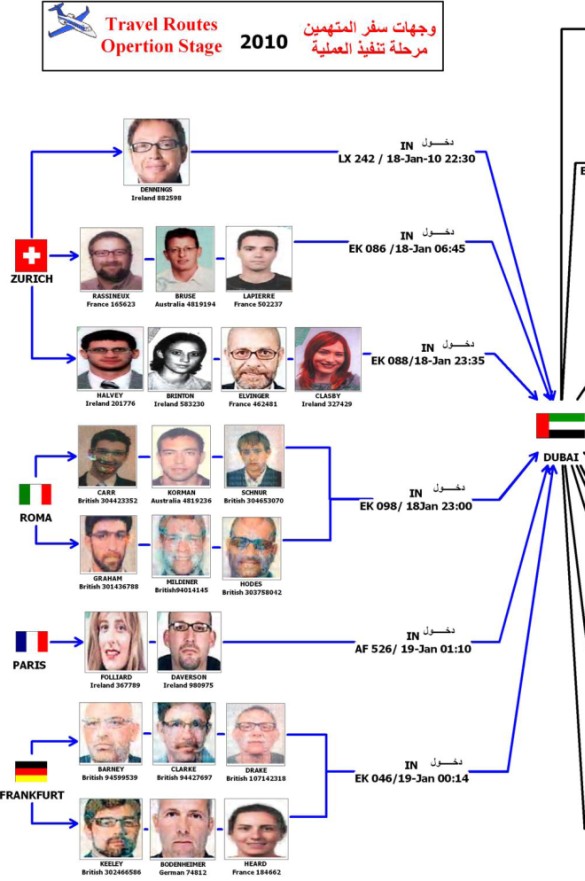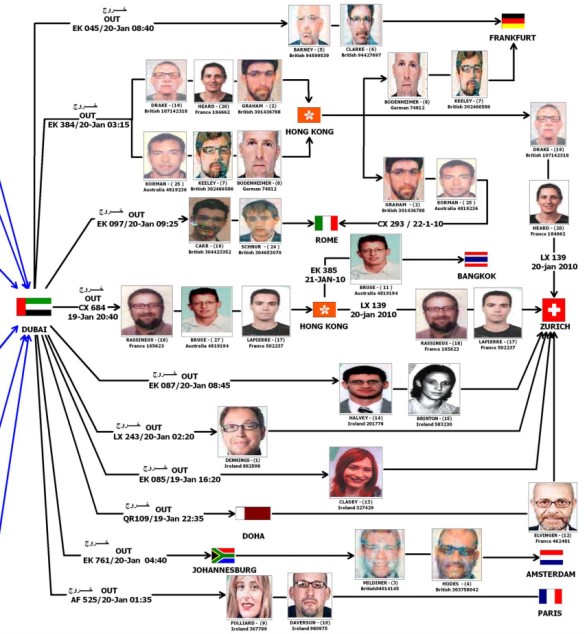On Thursday, the US State Department spokesmen P J Crowley was called on to break the US silence regarding the murder of Mahmoud al-Mabhouh:
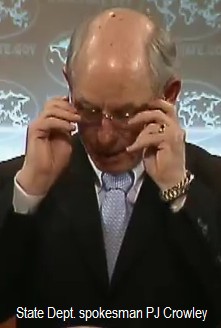 QUESTION: …has there been any comment on the apparent assassination in Dubai? Is that something the U.S. has weighed in on?
QUESTION: …has there been any comment on the apparent assassination in Dubai? Is that something the U.S. has weighed in on?
MR. CROWLEY: I don’t think we’ve weighed in on it. It is being investigated by Dubai authorities.
QUESTION: Are you concerned about what appears to have been the use of foreign passports, forged passports by foreign operatives?
MR. CROWLEY: Well, I think, as a – you probably – the best place to – well – I mean, we have taken steps in recent years to strengthen the security surrounding U.S. passports. Obviously, this has been an area where the United States has talked to other countries. We are very alert to attempts to use forged or stolen passports, and as a major effort to limit the travel of terrorists around the world. So it is something that we have spent a lot of time focused on.
As to – I mean, that obviously is an area that will be investigated and is being investigated by Dubai authorities.
QUESTION: Would you be – would you condemn the use by an intelligence agency of forging passports?
MR. CROWLEY: Well, there’s an assumption behind your question that I can’t address.
QUESTION: Have the Dubai authorities, or the European partners, allies, asked the United States for help in the investigation into —
MR. CROWLEY: Not to my knowledge.
QUESTION: And would you cooperate with Interpol on any of this?
MR. CROWLEY: Well, we – I mean, we have specific responsibilities to – law enforcement would be cooperative if there’s anything that we can do or if we come across any information that we think is useful to the investigation.
Maybe Dubai can set up an 800 number — a number US officials can call if they happen to stumble across any useful information. Crowley’s response did not suggest the US intends to stonewall the Dubai investigation, but the tone was one of calculated disinterest.
But wait. The Wall Street Journal now reports:
American and United Arab Emirates authorities are exchanging information on a handful of credit-card accounts, issued through two U.S. firms, that Dubai police say were used by suspects in the killing of a top Hamas official in Dubai, according to a person familiar with the situation.
For years, U.S. government officials have flown into the U.A.E. and other Persian Gulf states, asking for assistance in terror-financing probes. The investigation of Mahmoud al-Mabhouh’s death appears to be the highest-profile case in which the roles are reversed: The U.A.E. is turning to Washington in its efforts to track down suspected criminal financing through the U.S. banking system.
What the WSJ neglects to mention is that Dubai’s call for US assistance comes at particularly awkward moment.
As the US pushes for sanctions against Iran, the emirate of Dubai is in a pivotal position to tighten or ease the economic pressure — it functions as Iran’s most important commercial and financial connection with the rest of the world.
If Washington drags its feet in assisting Dubai now, why should the US expect help from Dubai on the larger issue of pressuring Iran — an issue that concerns Israel more than any other country?
At the same time, if the Associated Press is to be believed, Dubai is not getting much help from European governments in the investigation:
The spotlight is falling on those countries where police say the alleged assassins’ trails begin and end: Switzerland, Italy, France, Germany and the Netherlands.
Authorities there have either declined to say whether they are investigating, or told The Associated Press they have no reason to hunt down the 26 suspects implicated in the Jan. 19 killing of Mahmoud al-Mabhouh.
European countries’ reluctance to investigate may have something to do with the widely held belief that the killing of al-Mabhouh was carried out by a friendly country’s intelligence agency – Israel’s Mossad. The Jewish state has previously identified him as the point man for smuggling weapons to the Gaza Strip’s Hamas rulers.
Experts say arresting Israeli agents – or even digging up further evidence that Israel was involved – could be politically costly.
And what exactly would that political cost be? Israel might refuse to participate in the Eurovision Song Contest? Israel leaders might decline to visit European countries where they already face the risk of being arrested for war crimes?
Certainly, the arrest of Mossad agents by a European country might sour relations with the US, but what’s the US going to do? Kick NATO troops out of Afghanistan?
As far as I can see, we’re looking at a political balance sheet where all the loses are on Israel’s side.
But we scored a major victory against Hamas, Israelis say.
Let’s be honest. The future of the Palestinian national movement, of which Hamas is a part, did not depend on Mahmoud al-Mabhouh. The Islamist organization and his family no doubt mourn his loss, but he is replaceable.
Meanwhile, the Dubai police chief Dahi Khalfan Tamim made a move that will not sit well with dual national Israelis and non-Israeli Jews who conduct business in the region. He urged Arab countries to thoroughly check any Jew who carries a non-Israeli passport in order to “prevent Mossad’s infiltrations”.
You might call it profiling payback.
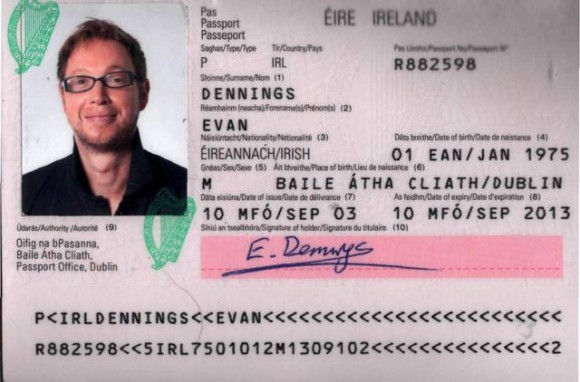


 Tommy Silverstein has been held in solitary confinement for the past 27 years, longer than anyone else in the federal prison system, his lawyers say.
Tommy Silverstein has been held in solitary confinement for the past 27 years, longer than anyone else in the federal prison system, his lawyers say. QUESTION: …has there been any comment on the apparent assassination in Dubai? Is that something the U.S. has weighed in on?
QUESTION: …has there been any comment on the apparent assassination in Dubai? Is that something the U.S. has weighed in on?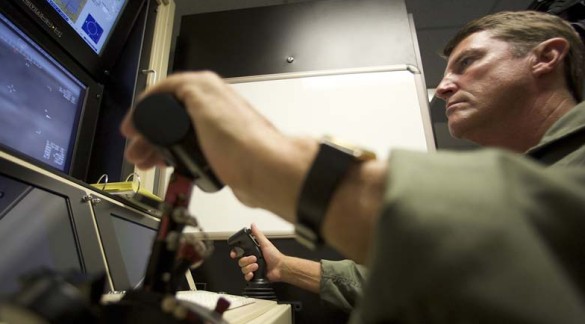
 Henry — a king who fights with his men and doesn’t simply issue commands — declares:
Henry — a king who fights with his men and doesn’t simply issue commands — declares:
 I thought of that moment today when I read
I thought of that moment today when I read  Mr Tal did not exactly conceal his prior affiliations when he appeared on Fox News during the 2006 Lebanon war. He opined then that “this is a war that Israel cannot afford to lose”.
Mr Tal did not exactly conceal his prior affiliations when he appeared on Fox News during the 2006 Lebanon war. He opined then that “this is a war that Israel cannot afford to lose”.
